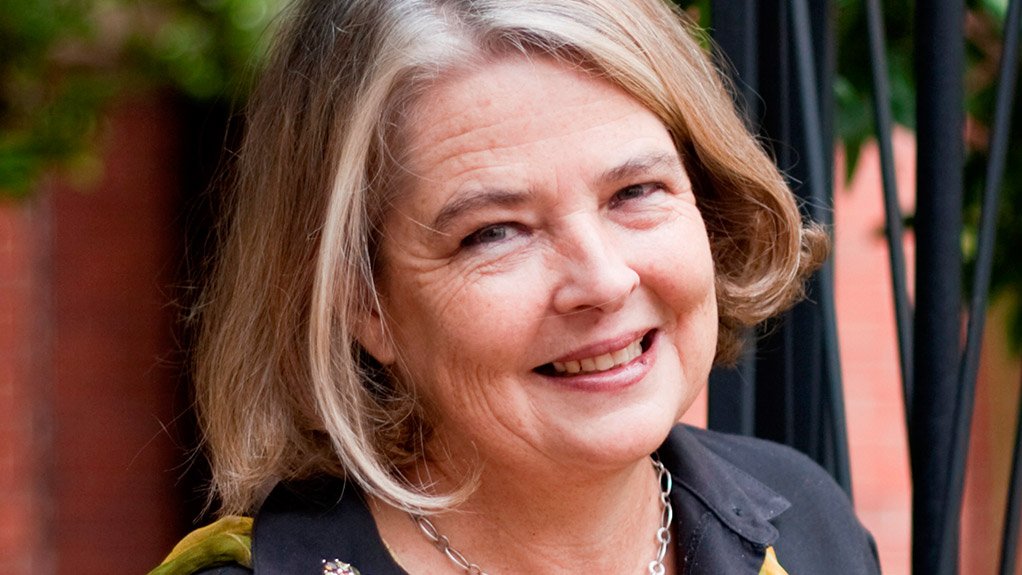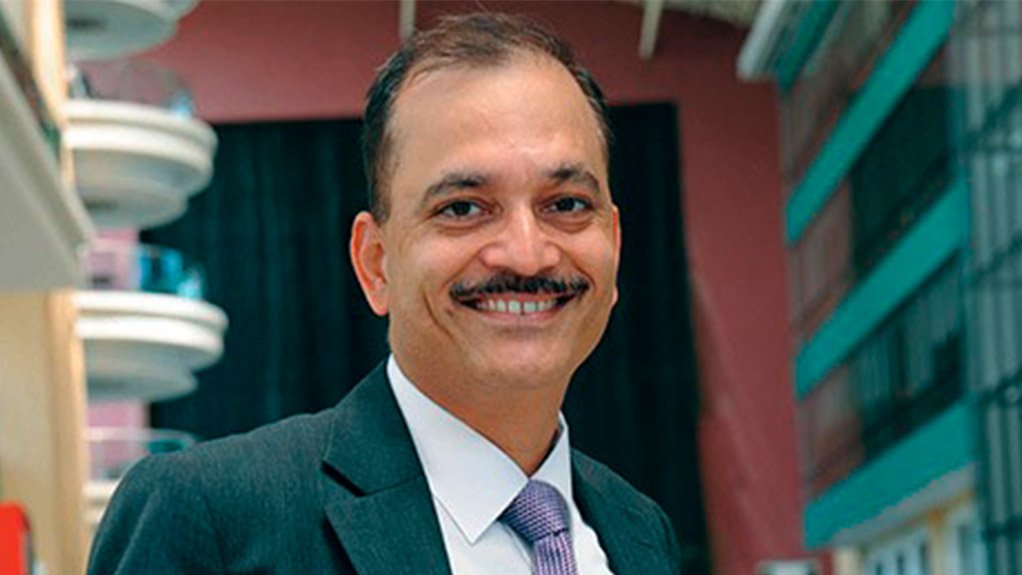We all have a role to play to achieve water security
This article has been supplied as a media statement and is not written by Creamer Media. It may be available only for a limited time on this website.
On the occasion of World Water Day, Nitin Paranjpe of Unilever and Professor Tally Palmer of Rhodes University look at how partnerships are helping to make access to clean water a reality for all.
Access to clean, safe water is one of the human rights we celebrated yesterday. Water is essential for food, energy, prosperity, health and wellbeing and rightfully, ensuring everyone, everywhere has access to water is a key part of the recent Sustainable Development Goals. At global and national level, momentum is building to safeguard this precious resource.
South Africa has globally acclaimed water policies and legislation which recognises all citizens’ right to clean water. Yet, on the ground, challenges remain. The ongoing drought has already caused losses of 16 billion rand in the agriculture sector, cut manufacturing output and hit overall growth. And we can expect more extreme weather events and increased competition for water as the impacts of climate change increase. There are two main reasons people experience low water security. Sometimes, there is simply not enough to meet demand. The 2013 National Water Resource Strategy indicated that most regions in South Africa already use more that 80% of their available water. This physical scarcity means everyone should join the Government’s “war on leaks” and save water wherever possible.
But there is another type of water scarcity – one where water is available but people are unable to access the quantity and quality they need. This is where we can make a real and more immediate difference. The causes are multiple and complex, from historical inequities and poor infrastructure to bureaucratic hurdles, and any response needs to secure the support of individuals, communities and business. It is this search for sustainable solutions that has brought us to work together over the past seventeen years through the Unilever Centre for Environmental Water Quality at Rhodes University. Our joint ambition is simple – we want to make sure water is sustainably and equitably used and protected for the benefit of all South Africans, now and in the future.
To ensure change in the long-term, our first priority is to empower communities to have a say in how local water resources are managed and governed. This is critical when there are so many competing claims for water from industrial, agricultural and domestic users. In the water-stressed and poorer Eastern Cape province we are working with the Department of Water and Sanitation to set up a network of forums where engaged citizens can communicate their needs and concerns. One of their first actions will be to contribute to the Catchment Management Agency’s strategy for water resources between the Mzimvubu and Tsitsikamma rivers.
But we also need to provide immediate, practical solutions. Working with a set of partners, our Water for Dignity project encourages citizens to record and report outages, save water at household level and organise access to emergency water supplies. Last year, we established two 10,000 Litre tanks which provide emergency water for more than 1,500 citizens in Vukani, an unreliably-supplied suburb of Grahamstown East. We also seeded a community-based business, where Water for Dignity volunteers source and provide a staged payment process for 200 Litre household barrels. Twenty households are participating at present – and the model which will soon be self-sustaining. Our goal is for every South African household struggling with interrupted water supply to have a 200 Litre barrel within five years.
At Unilever, we know our business can’t succeed without water. We need water to grow our agricultural raw materials, keep our factories running and for customers to enjoy great results when they cook, clean and wash with our products. We’re working hard to use water more efficiently within our own supply chain and to innovate products that enable our consumers to use less water. Since 1995, we’ve cut the water abstracted by our factories per unit of production by 74%.
We’ve also partnered with regional and global organisations to scale up solutions for greater impact. Our partnership with UNICEF, announced today to mark World Water Day, will promote handwashing in schools and improve water management across target African countries. The aim is to improve access to safe water as a basic right and drive behaviour change in how people use and conserve water.
The stakes could not be higher - as the President of the World Bank Jim Yong Kim recently noted, “achieving the water global goal would have multiple benefits, including laying the foundations for food and energy security, sustainable urbanization, and ultimately climate security.” This year’s UN-Water theme, Water and Jobs, is a stark reminder of how many people depend on water for their livelihood and employment. Communities, busiesses and governments all have an interest in ensuring that we manage this scarce resource sustainability and equitably. It is critical for those who lack access to water today, but it is also essential if we want our communities and economy to thrive in the future.
Comments
Press Office
Announcements
What's On
Subscribe to improve your user experience...
Option 1 (equivalent of R125 a month):
Receive a weekly copy of Creamer Media's Engineering News & Mining Weekly magazine
(print copy for those in South Africa and e-magazine for those outside of South Africa)
Receive daily email newsletters
Access to full search results
Access archive of magazine back copies
Access to Projects in Progress
Access to ONE Research Report of your choice in PDF format
Option 2 (equivalent of R375 a month):
All benefits from Option 1
PLUS
Access to Creamer Media's Research Channel Africa for ALL Research Reports, in PDF format, on various industrial and mining sectors
including Electricity; Water; Energy Transition; Hydrogen; Roads, Rail and Ports; Coal; Gold; Platinum; Battery Metals; etc.
Already a subscriber?
Forgotten your password?
Receive weekly copy of Creamer Media's Engineering News & Mining Weekly magazine (print copy for those in South Africa and e-magazine for those outside of South Africa)
➕
Recieve daily email newsletters
➕
Access to full search results
➕
Access archive of magazine back copies
➕
Access to Projects in Progress
➕
Access to ONE Research Report of your choice in PDF format
RESEARCH CHANNEL AFRICA
R4500 (equivalent of R375 a month)
SUBSCRIBEAll benefits from Option 1
➕
Access to Creamer Media's Research Channel Africa for ALL Research Reports on various industrial and mining sectors, in PDF format, including on:
Electricity
➕
Water
➕
Energy Transition
➕
Hydrogen
➕
Roads, Rail and Ports
➕
Coal
➕
Gold
➕
Platinum
➕
Battery Metals
➕
etc.
Receive all benefits from Option 1 or Option 2 delivered to numerous people at your company
➕
Multiple User names and Passwords for simultaneous log-ins
➕
Intranet integration access to all in your organisation






















